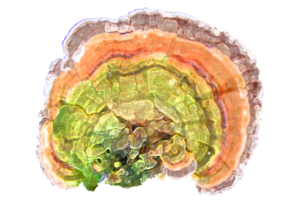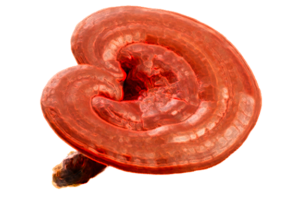John H.K. Yeung, Penelope M.Y. Or
Abstract
The effects of polysaccharide peptide (PSP), an immunomodulator isolated from Coriolus versicolor COV-1, on glutathione (GSH) and GSH-related enzymes was investigated in C57 mouse. Administration of PSP (1–4 μmole/kg, i.p.) produced a transient, dose-dependent depletion (10–37%) of hepatic GSH, with no effect on serum glutamic–pyruvic transaminase (SGPT) activity. Blood GSH was depleted (6–25%) at 3 h, followed by a rebound increase above the control GSH level (20%) at 18 h. The GSSG/GSH ratio, a measure of oxidative stress, was increased 3 h after PSP treatment but returned to normal levels at 24 h. Sub-chronic treatment of PSP (1–4 μmole/kg/day, i.p.) for seven days did not produce any significant changes in hepatic GSH levels and the GSSG/GSH ratio when measured 24 h after the final dose of PSP. PSP had little effect on glutathione transferase (GST), glutathione reductase (GSSG reductase) and glutathione peroxidase (GPX) activities in the liver. However, a dose-dependent increase in blood GPX activity (30–48%) was observed at 3 h, which coincided with the increase in the GSSG/GSH ratio. The increase in blood GPX activity may be a responsive measure to deal with the transient oxidative stress induced by PSP treatment. The results showed that PSP only caused a transient perturbation on hepatic glutathione without affecting the GSH-related enzymes such as GST, GSSG reductase and GPX. The observed changes in blood GSH simply reflected the intra-organ translocation of glutathione, as the glutathione-related enzymes were not significantly affected by PSP treatment.
Copyright © 2006 Elsevier Ltd. All rights reserved.
Reference:
Food and Chemical Toxicology, Volume 45, Issue 6, June 2007, Pages 953–961


